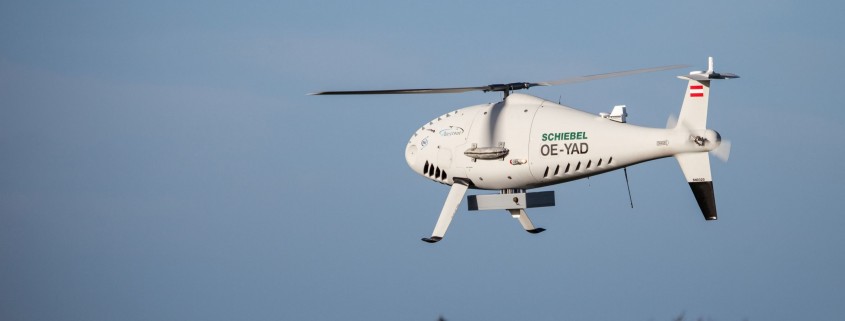Den Helder — The Netherlands Aerospace Centre (NLR) and partners conducted a successful flight campaign for the Netherlands Coast Guard last month, marking a major step forward in the process of safely integrating Remotely Piloted Aircraft System (RPAS) in civil aviation.
A RPAS can support the coast guard in its various endeavours, such as search and rescue operations, fisheries control, border control and maritime safety. In order to guarantee the safe introduction of RPAS, the NLR developed the AirScout Detect And Avoid (DAA) system. This system ensures that a RPAS can detect and evade other aircraft. The NLR unveiled the working prototype during a flight campaign in December held at De Kooy Airfield in Den Helder. Jan-Floris Boer, Netherlands Aerospace Centre NLR: “The AirScout DAA system enabled the successful first overland flight of a remotely piloted aircraft system beyond visual line of sight in The Netherlands.”
The NLR conducted the flight campaign in collaboration with Schiebel, the Netherlands Coastguard, and the Royal Netherlands Air Force. Schiebel provided the unmanned helicopter – a CAMCOPTER® S-100. The Coast Guard provided a DO228 aircraft that acted as ‘intruder’. The Royal Netherlands Air Force provided as ‘intruder’ an Alouette helicopter, and also provided the Air Traffic Control services.
The activities were performed within the AIRICA (ATM Innovative RPAS Integration for Coastguard Applications) project, which is funded through the SESAR initiative (part of the Single European Sky project). SESAR aims to modernise the currently fragmented European ATM system. Chris Day, Head of Capability Engineering at Schiebel: “This demonstration is another positive step towards unmanned aircraft systems gaining access to a broader range of airspace.”
During the demonstration, the Remotely Piloted Aircraft ‘unexpectedly’ encountered an intruder aircraft. The CAMCOPTER® S-100 then had to determine an alternate route that took into account a satisfactory separation from the intruder aircraft, which the RPAS accomplished thanks to its AirScout DAA system.



Trackbacks & Pingbacks
[…] According to its own statements, the NLR has already developed a reliable evasion system for helicopter drones of the Austrian manufacturer Schiebel. The Israeli Elbit group intends to develop a collision avoidance technology for the military drones ordered by Switzerland by 2021. The Israeli manufacturer of the „Heron“ drones is also working with the US company Honeywell on such a process, but it is not ready for use. According to media reports, Honeywell’s cooperation with the US manufacturer of „Predator“ drones is much more advanced. […]
[…] According to its own information, the Dutch space institute NLR has already developed a reliable evasion system for helicopter drones. For the military drones ordered by Switzerland, the Israeli Elbit Group intends to develop a corresponding technology by 2021. The Israeli manufacturer of the „Heron“ drones is also working with the US company Honeywell on such a procedure. According to media reports, Honeywell’s cooperation with the US manufacturer of the „Predator“ drones is much more advanced. […]
Comments are closed.